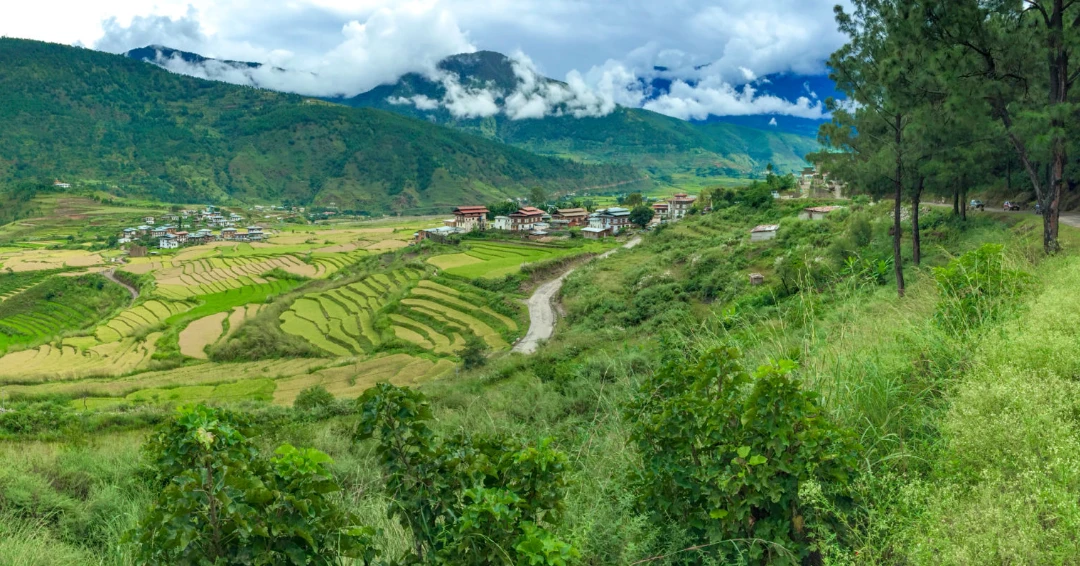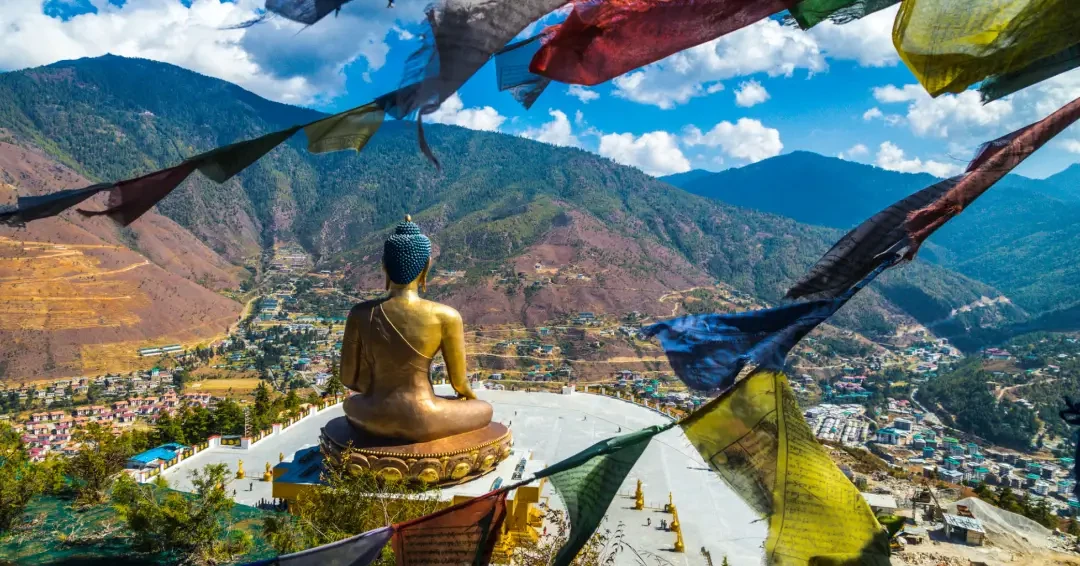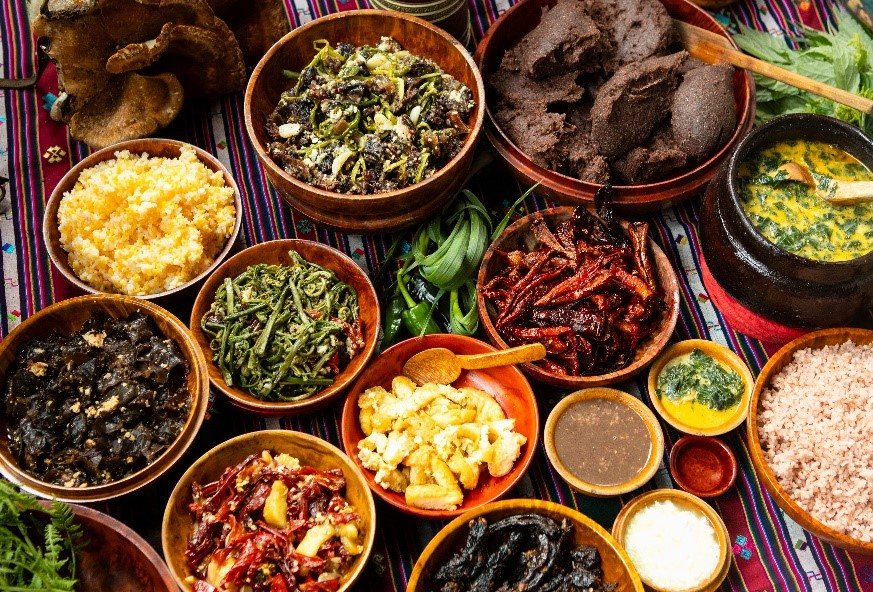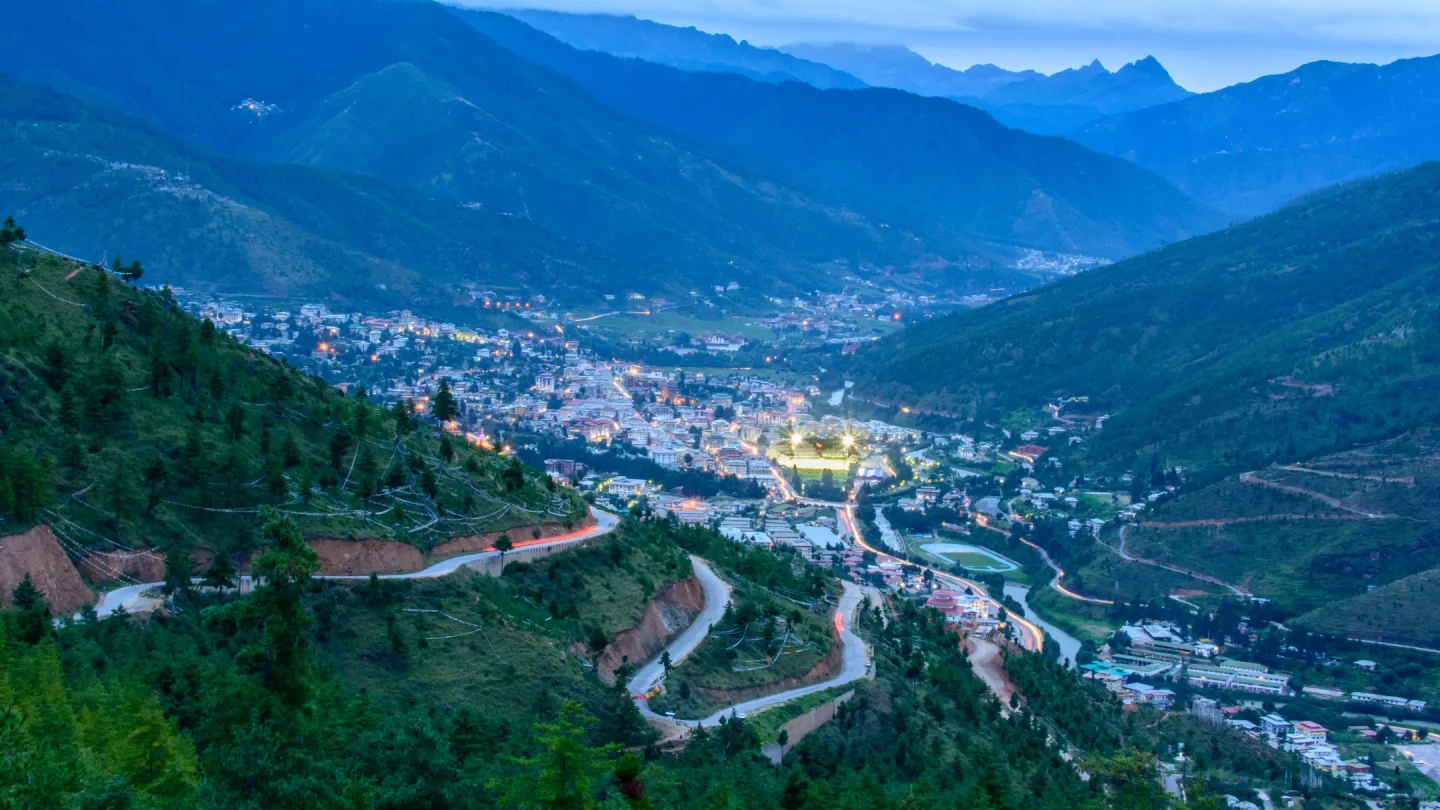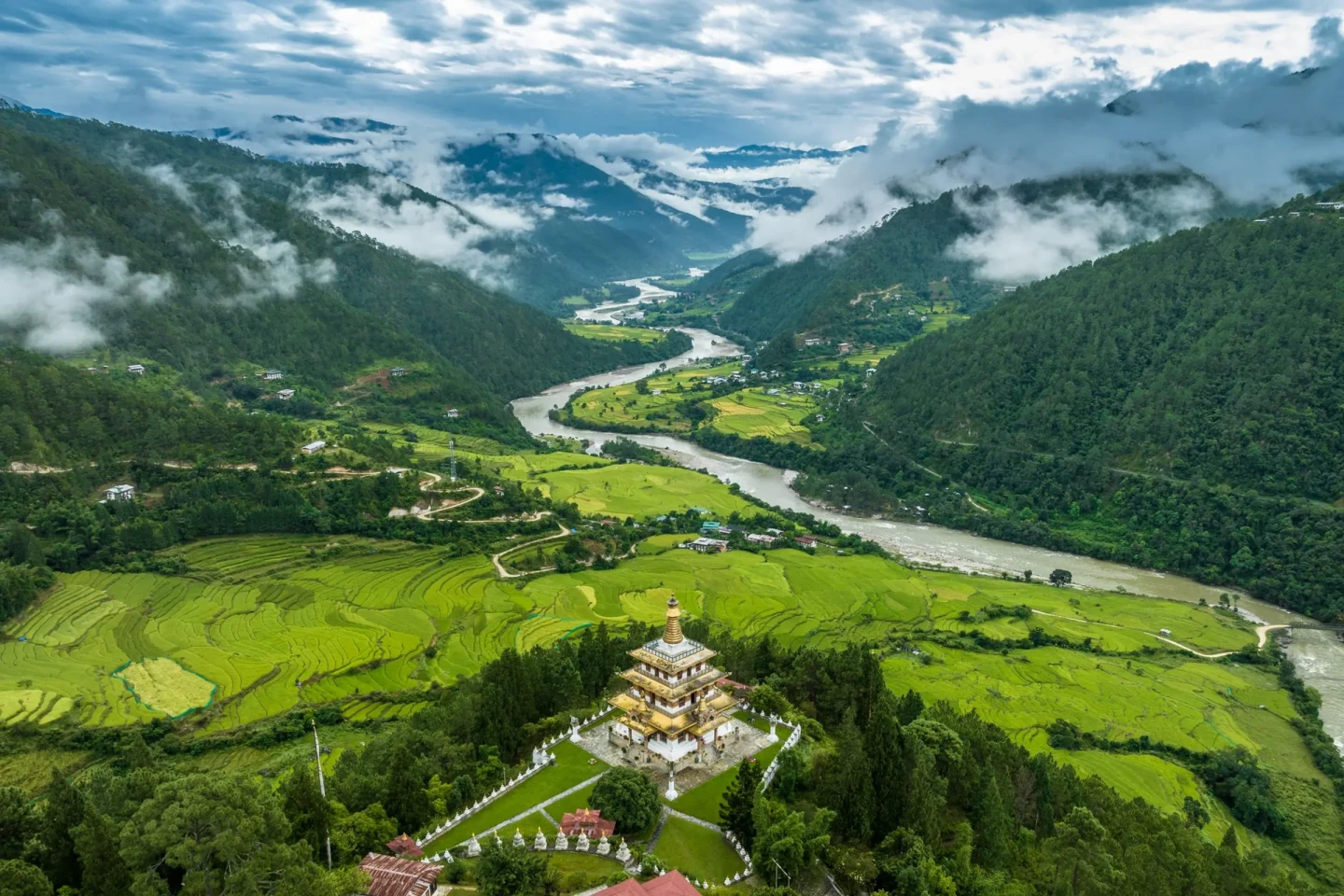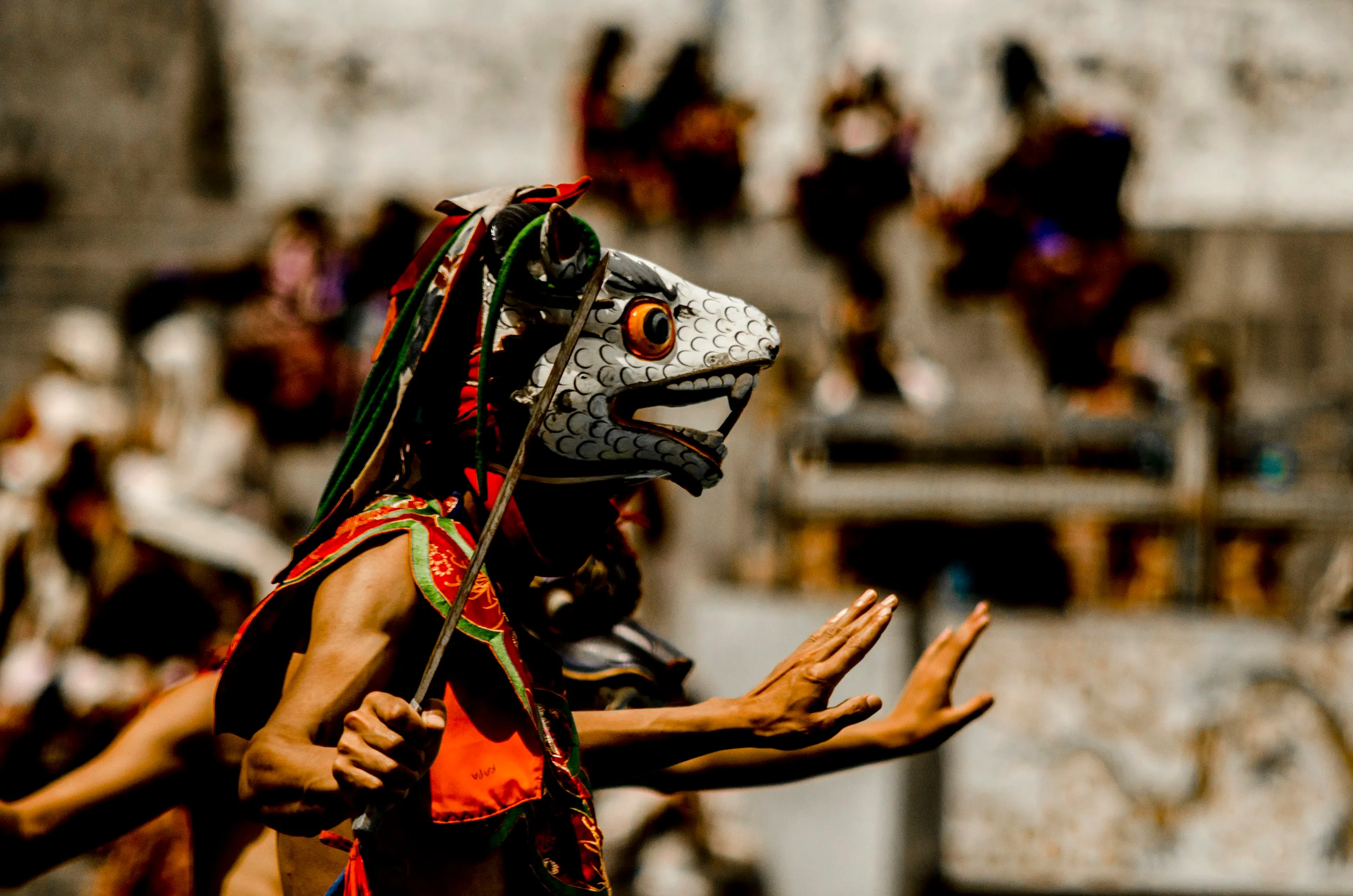Nestled in the eastern Himalayas, Bhutan emerges as a captivating destination that blends pristine natural beauty with profound cultural heritage, offering Djiboutian travelers a stark contrast to the arid landscapes and coastal vibes of their homeland. While Djibouti thrives as a strategic hub in the Horn of Africa, known for its bustling ports, diverse French and Arabic influences, and resilient desert ecosystems, Bhutan stands as a landlocked kingdom prioritizing spiritual well-being over material progress, with its towering mountains, lush valleys, and Buddhist monasteries providing a serene escape from the fast-paced global connectivity that defines Djibouti. Diplomatic relations between Bhutan and Djibouti, established through mutual membership in the United Nations and shared commitments to international cooperation, remain cordial yet understated, with minimal direct trade or cultural exchanges—such as the modest $3,450 in exports from Djibouti to Bhutan in recent years—highlighting opportunities for deeper connections through tourism. For Djiboutians accustomed to the heat of the Danakil Desert or the multicultural streets of Djibouti City, Bhutan presents a realistic yet compelling adventure: expect winding roads, variable weather, and a slower rhythm of life, but be rewarded with authentic encounters that foster personal reflection and cultural immersion, making it an ideal retreat for those seeking tranquility amid dramatic scenery.
Visa and Entry Requirements
Bhutan's tourism is governed by a controlled policy designed to preserve its environment and culture, mandating that all foreign visitors, including Djiboutians, must book their trips through licensed Bhutanese tour operators. This ensures sustainable practices and limits visitor numbers, aligning with the kingdom's philosophy of quality over quantity. For Djiboutian tourists, the visa process begins with selecting a reputable tour operator who handles the application on your behalf; you provide a scanned passport copy valid for at least six months beyond your intended stay, a recent passport-sized photo, and proof of onward travel. The operator submits these to the Tourism Council of Bhutan, which processes the visa within about five working days, issuing an eVisa approval letter that you present upon arrival at Paro International Airport. Payment for the tour, including the Sustainable Development Fee (SDF), must be made in advance via bank transfer to secure the visa, as entry is denied without it. The SDF, currently set at $100 per person per night for adults (with reductions for children aged 6-12 at $50 and exemptions for those under 6), funds conservation, education, and healthcare initiatives, directly impacting overall pricing by adding to the minimum daily package rate that covers accommodations, meals, transport, and guides. Djiboutians should note that while the process is straightforward, it's essential to plan ahead, as last-minute bookings may face delays, and the fee structure encourages longer stays to maximize value.
Travel Routes from Djibouti to Bhutan
Traveling from Djibouti to Bhutan involves multiple flights with transits, given the absence of direct routes, and requires careful planning around Bhutan's limited aviation infrastructure. From Djibouti-Ambouli International Airport (JIB) in Djibouti City—the primary gateway for most Djiboutians—common itineraries include flying with Ethiopian Airlines to Addis Ababa (ADD), then connecting to Delhi (DEL) or Bangkok (BKK), before boarding Drukair or Bhutan Airlines to Paro International Airport (PBH). For instance, a typical route might be Ethiopian Airlines flight ET363 from JIB to ADD, followed by ET688 to DEL, and then Drukair KB201 to PBH, totaling around 20-24 hours with layovers. Alternatives via Qatar Airways through Doha (DOH) or other carriers to Kathmandu (KTM) are possible, but Delhi and Bangkok remain the most reliable transit points due to frequent connections. Drukair and Bhutan Airlines are the only operators serving Bhutan, with flights limited to these hubs because Paro Airport, nestled in a deep valley surrounded by mountains, is one of the world's most challenging for landings, operable only during daylight and in good weather—leading to frequent delays or cancellations during monsoons or fog. Djiboutian travelers should book flights through their tour operator for seamless coordination, anticipate potential rescheduling (with buffers of at least one day), and expect realistic inconveniences like early check-ins or diversions, ensuring a flexible mindset for this leg of the journey.
Best Time to Visit and Seasonality
Bhutan's four distinct seasons profoundly influence travel experiences, with weather varying dramatically across its mountainous terrain, making seasonal awareness crucial for Djiboutian visitors unaccustomed to Himalayan climates. Spring (March to May) brings mild temperatures averaging 10-20°C in valleys, blooming rhododendrons, and clear skies ideal for trekking and sightseeing, though occasional showers can occur; this period aligns with festivals like Paro Tshechu in April, offering vibrant mask dances and cultural immersion with moderate crowds. Summer (June to August) introduces the monsoon, with heavy rains (up to 500mm monthly) causing landslides and humid conditions around 20-30°C, deterring most tourists but highlighting lush greenery and lower costs—however, it's less recommended for Djiboutians seeking dry weather similar to home. Autumn (September to November) stands out as peak season, featuring crisp air (5-15°C), harvest festivals such as Thimphu Tshechu in September/October, and stunning views of snow-capped peaks with minimal rainfall, though expect higher prices and busier sites. Winter (December to February) delivers cold snaps down to -5°C at higher elevations, with snowfall in the north but sunny days in the south, perfect for birdwatching and fewer visitors, yet requiring warm gear. For Djiboutians, October to November or March to May are optimal, balancing comfortable weather, festival highlights, and manageable crowds, allowing ample time for acclimatization and outdoor activities without the extremes of Djibouti's heat or Bhutan's monsoons.
Money, Costs, and Payment Methods
Bhutan's currency, the Ngultrum (BTN), is pegged to the Indian Rupee (INR) at a 1:1 ratio, facilitating easy exchanges, but Djiboutian travelers should prepare for a cash-reliant economy with limited digital options. ATMs are available in major towns like Thimphu and Paro, accepting Visa and Mastercard from international banks, though withdrawal limits (around 10,000-40,000 BTN) and fees apply, and rural areas lack facilities—recommend carrying USD for conversion at banks or the Paro Airport exchange desk, as it's widely accepted and offers better rates than Djiboutian Francs. Credit cards are usable in upscale hotels and some shops, but not universally, so cash in BTN or USD is essential for small purchases. Tour packages, mandated for Djiboutians, typically include accommodations, meals, internal transport, guides, and the SDF, starting at a minimum daily rate of about $250 per person (varying by season and group size), leaving extras like alcoholic drinks, souvenirs, tips (10-15% for guides/drivers), and personal expenses uncovered. Budget realistically for $50-100 daily on incidentals, noting that Bhutan's emphasis on sustainability keeps costs higher but ensures inclusive experiences, advising Djiboutians to exchange money upon arrival and monitor spending to avoid surprises.
Health, Safety, and Travel Insurance
Health considerations in Bhutan revolve around its high-altitude terrain, where elevations from 2,000-4,000 meters pose risks of acute mountain sickness (AMS), characterized by headaches, nausea, and fatigue—Djiboutians, coming from sea-level environments, should ascend gradually, stay hydrated, and avoid alcohol initially. Recommended vaccinations include hepatitis A/B, typhoid, and rabies (due to stray dogs), with routine shots like tetanus updated; medical facilities are basic in rural areas but adequate in Thimphu, emphasizing the need for comprehensive travel insurance covering emergency evacuation by helicopter, as costs can exceed $10,000. Bhutan boasts exceptional safety with low crime rates, thanks to its close-knit communities and Buddhist values, but minor risks include petty theft in tourist spots, uneven paths causing slips, and wildlife encounters—always travel with a guide. Djiboutians will appreciate the peaceful atmosphere contrasting their homeland's urban bustle, but securing insurance with high-altitude and medical repatriation clauses is non-negotiable, providing peace of mind for this remote destination.
Cultural Etiquette and Social Expectations
Bhutanese society, deeply rooted in Vajrayana Buddhism, emphasizes respect, humility, and harmony, requiring Djiboutian visitors to adapt their behaviors for meaningful interactions. In temples and monasteries, remove hats and shoes, dress modestly (covering shoulders and knees, avoiding revealing attire), and circumambulate clockwise while refraining from pointing at deities or monks—photography is often restricted inside, so ask permission. Public displays of affection are frowned upon, and patience is key in social dealings, as Bhutanese prioritize politeness over haste, contrasting perhaps with Djibouti's more direct communication styles influenced by French and Arabic cultures. Embrace humility by accepting offerings with both hands, using titles like "Dasho" for officials, and avoiding discussions on politics or religion that could offend; modesty in dress extends to everyday settings, favoring long pants and sleeves. Djiboutians might adjust by toning down expressive gestures, fostering deeper connections through genuine curiosity about local customs, ultimately enriching their experience in this spiritually attuned kingdom.
Connectivity, SIM Cards, Internet Access
Connectivity in Bhutan varies from reliable in urban centers to spotty in remote valleys, making preparation essential for Djiboutian travelers reliant on communication. Wi-Fi is available in most hotels and cafes in Thimphu and Paro, often free but slow (5-10 Mbps), suitable for emails but not streaming; rural lodges may offer limited access via hotspots. Local SIM cards from B-Mobile or TashiCell, purchasable at Paro Airport or town outlets with your passport and visa, provide affordable 4G data—tourist packages start at 500 BTN for 5GB valid 7-30 days, ensuring coverage in populated areas. Djiboutian apps like those for banking or social media work without restrictions, but a VPN is useful for secure browsing on public networks. For those with limited English, SIMs enable translation apps, bridging gaps until engaging with English-speaking guides, allowing Djiboutians to stay connected while immersing in Bhutan's offline charm.
Language and Communication
Dzongkha serves as Bhutan's national language, but English is the medium of instruction in schools and prevalent in tourism, easing interactions for Djiboutian visitors. Tour guides, hotel staff, and urban locals speak fluent English, ensuring smooth communication during organized trips, though rural elders may rely on Dzongkha or regional dialects like Sharchop. French or Arabic-speaking guides are not commonly available, as tourism caters primarily to English, Mandarin, or European languages—Djiboutians with limited English should request phrasebooks or use translation apps like Google Translate, which supports Dzongkha. Non-verbal cues, such as smiles and gestures, go far in conveying respect, and engaging guides as interpreters fosters cultural exchange, helping Djiboutians navigate conversations effectively in this multilingual yet accessible environment.
Packing and Preparation Advice
Packing for Bhutan demands versatility to handle its variable Himalayan climate, from warm valleys to chilly heights, advising Djiboutians to layer clothing for comfort. Essentials include breathable long-sleeve shirts, pants, and modest attire for religious sites; warm fleece jackets, thermal underwear, gloves, and hats for evenings or higher altitudes; sturdy hiking boots for trails and waterproof jackets for rain. Personal items like sunscreen (high SPF), lip balm, insect repellent, and reusable water bottles combat dry air and bugs; medications for altitude sickness (acetazolamide if prescribed), motion sickness (for winding roads), and personal prescriptions are vital, plus a first-aid kit. Power adapters for Type D/F/G sockets (230V), portable chargers for outages, and binoculars for wildlife enhance the experience—pack light, as tours involve walking, ensuring Djiboutians are prepared for this contrasting environment.
Bhutan’s Unique Tourism Philosophy
Bhutan's tourism is shaped by Gross National Happiness (GNH), a holistic philosophy measuring progress through psychological well-being, health, education, and environmental sustainability rather than GDP, influencing policies that prioritize cultural preservation over mass influxes. This "high value, low volume" approach limits visitors via the SDF and mandatory tours, ensuring economic benefits reach communities without overwhelming infrastructure or eroding traditions. Djiboutians, from a nation focused on strategic trade and development, may appreciate how GNH curbs unchecked modernization—banning plastic bags, protecting 70% forest cover, and fostering carbon negativity—creating a model where tourism enhances happiness. Understanding this helps visitors see restrictions as safeguards, encouraging respectful engagement with Bhutan's ethos of balanced living.
Mindset and Expectations for Visitors
Visiting Bhutan requires shifting expectations to embrace its unhurried pace, where life revolves around nature and spirituality rather than convenience, contrasting Djibouti's dynamic port life. Anticipate modest hotels with basic amenities, no high-end nightlife or shopping malls, and infrastructure like winding roads that extend travel times—embrace these as opportunities for reflection. The focus on hiking, monastery visits, and cultural festivals over material luxuries fosters inner peace, urging Djiboutians to disconnect from urban haste and value simplicity, transforming potential frustrations into profound personal growth.
Food and Dining Culture
Bhutanese cuisine reflects its agrarian roots and Buddhist influences, featuring spicy, cheese-laden dishes that emphasize communal sharing and hospitality. Staples like red rice accompany ema datshi (chili-cheese stew), phaksha paa (pork with radish), and momos (dumplings), often flavored with chilies as a vegetable—Djiboutians accustomed to bold Somali-inspired spices may find parallels but should request milder versions. Dining is social, with meals served family-style, butter tea (suja) as a staple, and ara (rice wine) for toasts; vegetarian options abound due to religious tenets. This culture of generous portions and warm welcomes invites Djiboutians to partake fully, appreciating food as a bridge to Bhutanese generosity.
Festivals, Religion, and Sacred Places
Religion permeates Bhutanese life through Vajrayana Buddhism, with festivals like Tshechus honoring Guru Rinpoche via mask dances, music, and rituals at dzongs, fostering community and spiritual renewal. Visitors witness cham dances symbolizing good over evil, but must dress modestly, remain silent, and avoid disrupting proceedings. Sacred sites like Taktsang Monastery require respectful conduct—no touching artifacts, clockwise navigation—enhancing understanding of Bhutan's devotion. For Djiboutians, these experiences offer insights into a faith-centered society, deepening appreciation for cultural depth.
Hidden Challenges and Practical Inconveniences
Bhutan's allure includes subtle challenges like slow service in eateries, itinerary shifts due to weather, power outages in remote areas, and bumpy roads prone to landslides—viewed as integral to its authentic charm rather than flaws. Patience transforms these into endearing traits, allowing Djiboutians to savor the kingdom's unpolished beauty and resilient spirit.
Shopping and Souvenirs
Shopping in Bhutan centers on artisanal crafts like handwoven textiles (kira/gho), thangka paintings, and bamboo items, found in markets like Thimphu's Weekend Market—bargaining is minimal, with fixed prices reflecting fair trade. Seek authentic goods certified by the Tourism Council, avoiding antiques, for meaningful mementos that support local artisans.
Altitude Awareness and Physical Preparedness
Altitude affects all, with symptoms like dizziness emerging above 2,500 meters—precautions include gradual ascent, hydration (3-4 liters daily), light meals, and rest. Djiboutians should consult doctors, avoid overexertion, and monitor for severe signs requiring descent, ensuring safe enjoyment of treks.
Security, Safety, and Emergency Information
Bhutan's safety is exemplary, with low crime and vigilant communities, but respect laws against smoking in public or drug use. Emergency contacts include 113 (police), 112 (ambulance), 110 (fire); Djiboutian embassy support via India. Stay informed for a secure visit.
Photography and Drones
Photography is welcomed outdoors but prohibited inside religious sites without permission; ask before capturing locals. Drones are banned for tourists without BCAA approval, often denied—stick to traditional methods for respectful documentation.
What Bhutan Does Not Have
Bhutan lacks skyscrapers, fast-food chains, casinos, and mega-malls, preserving its essence—embrace this as a refreshing departure, focusing on genuine experiences over commercialism.
Important Questions to Ask Before Booking a Tour
Before committing to a tour operator, Djiboutian travelers should inquire about their licensing by the Tourism Council of Bhutan to ensure legitimacy and adherence to standards, as this guarantees quality services and protects against subpar experiences. Ask for details on the guide's qualifications, including language proficiency—while English is standard, confirm if multilingual options exist—and their experience with international visitors to match your needs. Probe into itinerary flexibility, such as adjustments for weather or personal interests, and specifics on accommodations, from star ratings to amenities, ensuring they align with your comfort level. Inquire about meal inclusions, dietary accommodations for preferences like halal or vegetarian, and emergency protocols, including medical support and evacuation plans. Discuss SIM card arrangements for connectivity, tipping customs (typically 10-15% shared), and insurance requirements, verifying if the operator provides coverage or recommends policies. These questions, posed thoughtfully, empower you to select a partner that tailors the journey to your expectations, fostering a seamless adventure.
Conclusion
In reflection, Bhutan remains a rare sanctuary for Djiboutian travelers yearning for cultural depth, untouched natural splendor, and spiritual serenity, offering a profound counterpoint to commercialized vacations. This Himalayan kingdom invites you to unplug from the ordinary, embracing its timeless wisdom through mindful exploration, leaving an indelible mark of happiness and renewal.





